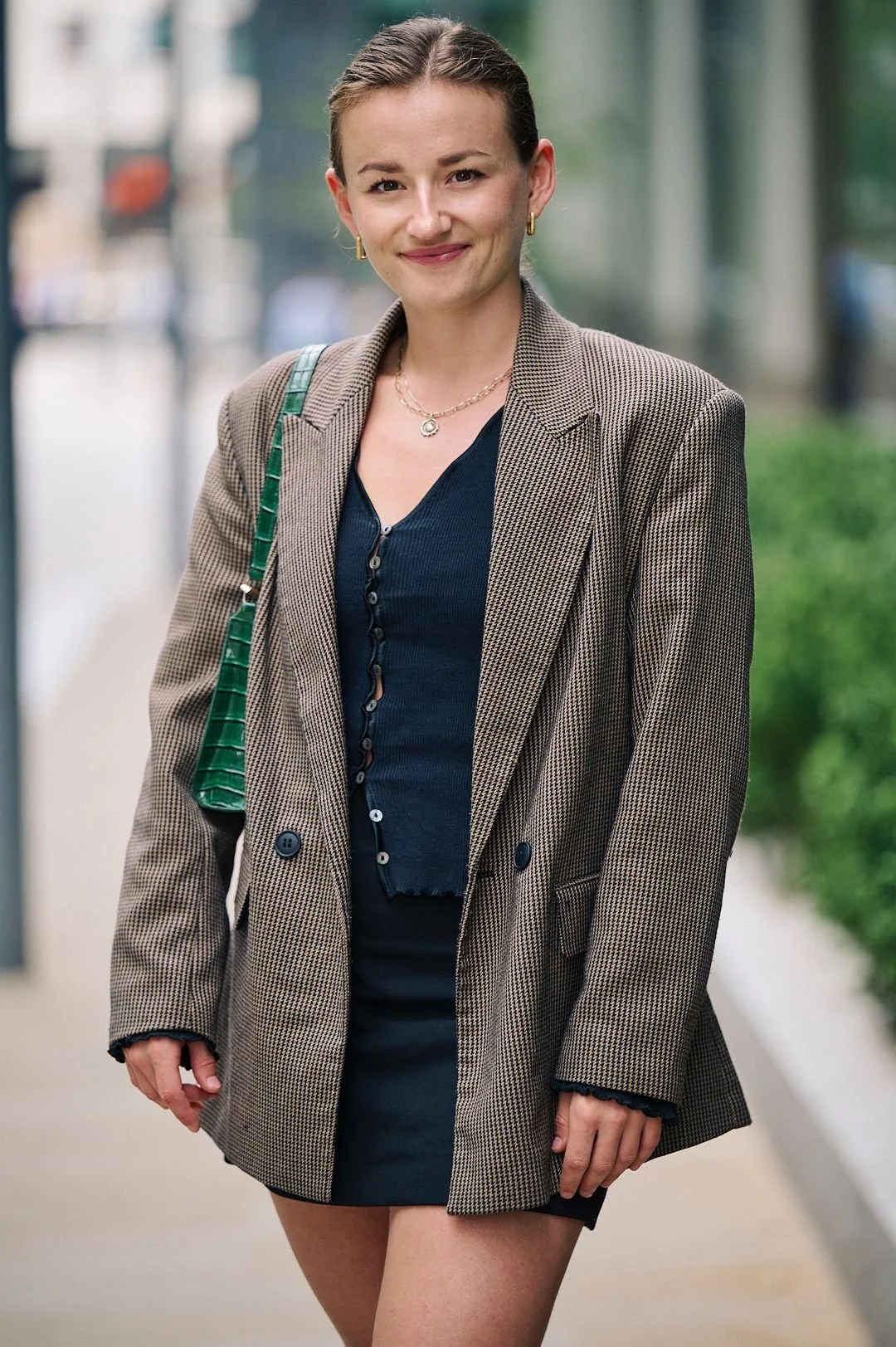Marie Claire’s editor Ally Head talks sustainability with SATCoL news
Ally Head
By Chloe Gray,
The pressure of perfectionism can put people off of making sustainable changes. There’s a feeling that you need to be perfectly zero waste, plastic-free, vegan and circular to make a difference – and you might imagine that stress weighs even heavier on those who work in the industry.
But Ally Head, health and sustainability editor at Marie Claire, enters the conversation around sustainability from a place of compassion, for both herself and her readers.
“My interest in looking after the planet has always been there,” she says. “I grew up weirdly obsessed with charity shops, and I have been mostly vegetarian for 10 years, but I’m still always keen to learn more.
“That’s a good place to start my role from; too many people see sustainability as a huge overhaul and think that if they can't do everything there’s no point in doing anything. But I hope I'm a good example of how making small changes and having curiosity is the simplest way to live a more sustainable life,” she says.
Head has spent the past two years as health and sustainability editor talking to the best minds in the field, so it is reassuring that she still believes small steps are the best way forwards. She speaks to those of us who want to live greener lives, but feel overwhelmed about how to make changes.
While 75% of adults in Britain are worried about climate change, according to Office for National Statistics, research from Deloitte in 2022 found that there are still barriers to living a more sustainable life. Expense, a lack of information and finding it too difficult were the top reasons that those interested in being more eco-friendly hadn’t yet made changes.
https://www2.deloitte.com/uk/en/pages/consumer-business/articles/sustainable-consumer.html
Head is keen to change that. While reporting on green issues is now commonplace in media outlets, especially those like Marie Claire who has a long history of talking about the intersectionality of climate change and feminism, being the editorial lead on all things circular gives her a chance to share her simple message.
“I try to connect our audience with people who are knowledgable and interesting that might not normally have a platform or who the readers wouldn’t usually turn to,” she says. That means it's out with the perfect eco-living we see on Instagram in favour of simple, achievable and meaningful advice from renowned experts.
This attitude is what neatly ties together her health and sustainability hats, she says. “There are many definitions of health, but for me, it’s about making decisions that help you feel your best. I see sustainability in the same way – it’s like self-care for the planet, making those choices that work towards a better environment.”
So, for those who didn’t grow up with an innate love of trawling through second-hand shops like Head, what has she learned about living a sustainable life in the simplest way?
Look beyond mainstream brands
“Particularly when it comes to activewear, a lot of the smaller, independent brands tend to be hotter on eco-friendly materials and production,” says Head. “It doesn’t require too much digging to work out what’s genuinely greener, either – a brand who knows they are doing good will say more than just the fact it’s made from ‘recycled materials’, but give information on the number of emissions per trainer or the stats on plastic saved from the ocean for each design.”
Head knows that there are many times the high street is still the best option for some people. In those cases, SATCoLs textile recycling bins come in handy. Found in places like Tesco and John Lewis, you can donate old clothes before buying new ones to ensure your used materials end up back in the fashion cycle, rather than landfill. And the scheme gives you a discount on your new purchases, too.
2. Curate your feed
While Head doesn’t believe in the pseudo-perfect lifestyles people share online, she does find following sustainable accounts offer easy inspiration. She’s found some of her favourite independent sustainable shops via Instagram, including brands that make comfortable workwear from recycled materials. She also recommends following circular fashion influencers who tag the eco-friendly brands they wear so you can shop from them too.
“I also get a lot of veggie food inspiration from social media – there are so many good recipes out there on Instagram and YouTube so eating a more sustainable diet doesn’t need to be overwhelming,” she says.
3. Don’t stress
“Do not get stressed, first and foremost,” she says. “There is no right or wrong, and worrying about sustainability leads to the all-or-nothing mindset that means we are paralysed from making change.”
Instead, follow Head’s advice about making simple swaps. “The easiest things I’ve done are recycle, shop vintage when I can and offset my flights. These things take barely any time out of my day but make a difference,” she says.
For you, the simple swaps might be different. But taking this expert-approved slow and steady approach seems like the best way to support the health of you and the world.


